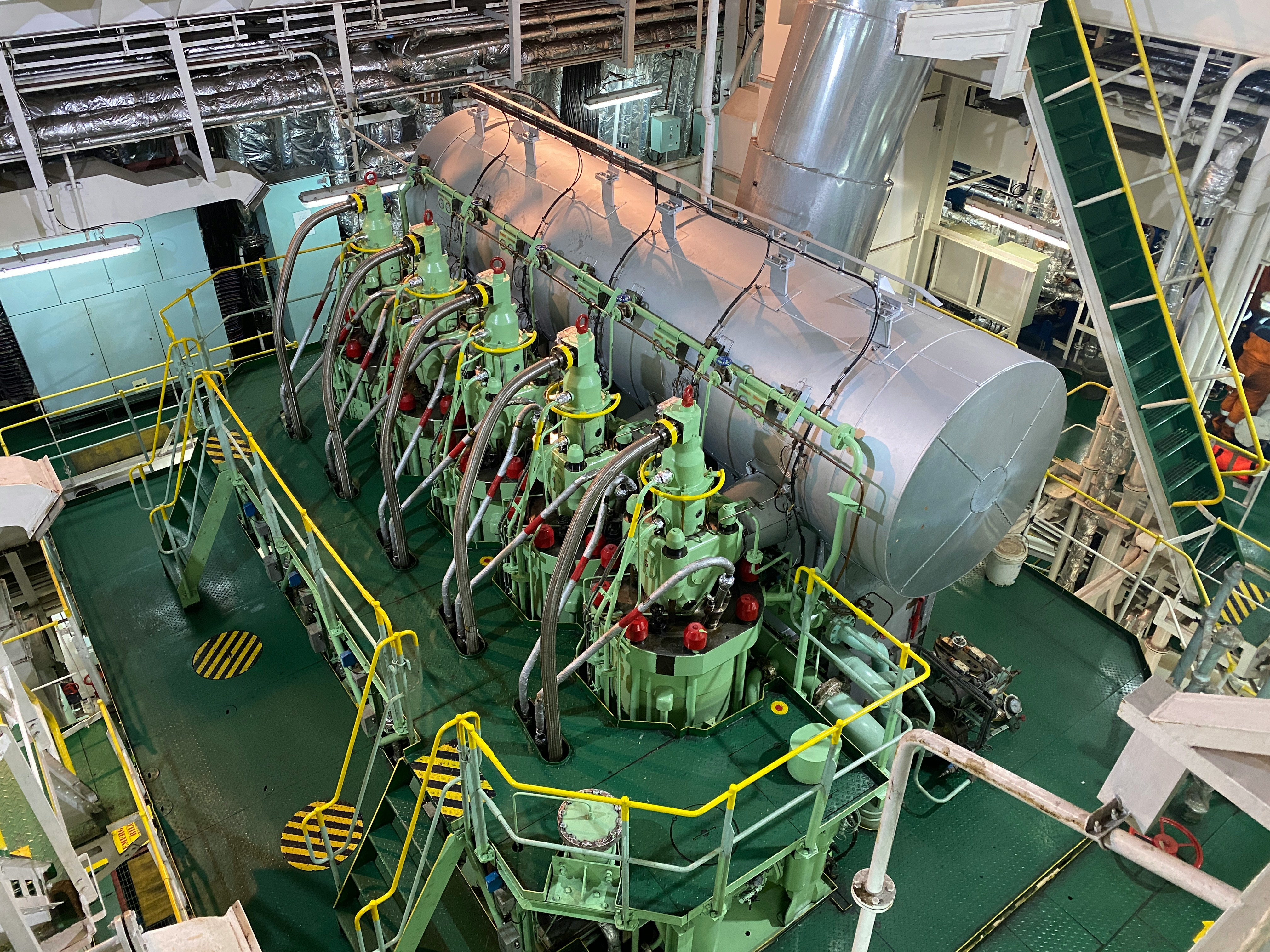Automatic Manufacturing in the GCC: Trends & Opportunities in 2025
Jul 11, 2025
The Gulf Cooperation Council (GCC) region is undergoing significant changes in its manufacturing industry, driven by the rapid growth of automatic manufacturing technologies. As we move into 2025, factories across the GCC are becoming smarter, faster, and more efficient, bringing great opportunities but also some challenges for businesses.
This easy-to-understand guide explains how automatic manufacturing is changing the way products are made in the GCC. It highlights the latest trends, what the future might hold, and how automation is helping countries in the region reduce their reliance on oil. Whether you're running a factory or just want to learn about the future of manufacturing, this article has valuable insights for you.
The Current State of Automatic Manufacturing in GCC
The GCC countries have long depended on oil and gas to fuel their economies. But in recent years, there has been a great effort to diversify and strengthen the manufacturing sector. This shift has been accompanied by a growing interest in industrial automation and modern engineering solutions.
Here are some key facts:
The industrial robot market in the Middle East and Africa is expected to grow by 20.4% each year from 2021 to 2026.
Over 60% of GCC manufacturers plan to invest in automation in the next five years.
The UAE and Saudi Arabia are leading the way, building smart factories and embracing new technologies.
Key Trends Shaping Industrial Automation

Looking ahead to 2025, these five trends are shaping how automatic manufacturing is developing in the GCC:
Smarter Factories (Industry 4.0)
Factories are becoming smarter by connecting machines to the internet and using data to improve how things are made. This is often called Industry 4.0.
Integration of AI and Machine Learning
Artificial Intelligence (AI) and Machine Learning (ML) are being increasingly incorporated into manufacturing processes, enabling predictive maintenance, optimised production scheduling, and enhanced quality control.
Increased Use of Robotics and Cobots
The deployment of industrial robots and collaborative robots (cobots) is on the rise, particularly in sectors such as automotive manufacturing, electronics, and food processing.
Intelligent Machines with Sensors (IIoT)
The Industrial Internet of Things (IIoT) connects machines through sensors that collect and share real-time data. This helps factories run more smoothly and respond quickly to issues.
Focus on Sustainability and Energy Efficiency
With growing environmental concerns, GCC manufacturers are turning to automation to improve energy efficiency and reduce waste in their operations.
Opportunities for GCC Manufacturers
The adoption of industrial automation presents numerous opportunities for GCC manufacturers:
Faster and Better Production
Automation technologies can significantly enhance production speed and efficiency. For instance, precision engineering processes automated with CNC machines can achieve higher accuracy and faster production times compared to manual methods.
Better Quality Control
Automated systems equipped with cameras and sensors can perform quality checks with greater accuracy and consistency than human inspectors.
Cost Savings and Global Competitiveness
While the initial investment in automation can be expensive, the long-term benefits often include reduced labour costs, minimised waste, and improved resource utilisation, leading to enhanced competitiveness in global markets.
New Jobs and Training
Contrary to common concerns, automation often leads to the creation of new, high-skilled jobs in areas such as robotics maintenance, data analysis, and systems integration.
A Stronger, More Diverse Economy
By modernising manufacturing, automation helps GCC countries reduce dependence on oil and grow other parts of the economy.
How Automatic Manufacturing Helps Different Industries
Industry | Automation Benefits |
Construction | Prefabricated components, 3D printing of structures, and automated equipment handling |
Automotive | Precision assembly, robotic welding, and faster production lines |
Electronics | Micro-level accuracy in component placement, reduced defect rates |
Food & Beverage | Consistent packaging, automated quality checks, and safer processing environments |
Petrochemicals | Real-time monitoring, predictive maintenance, and better safety controls |
Pharmaceuticals | Accurate dosing, sterile production, and regulatory compliance through automation |
Challenges and Considerations
While the opportunities are significant, GCC manufacturers must also consider several challenges when implementing automation:
High Initial Costs: The upfront investment required for advanced automation systems can be substantial.
Need for Skilled Workers: There is a need for skilled professionals who can operate and maintain complex automated systems.
Cultural Adaptation: Shifting from traditional manufacturing methods to automated processes requires a change in organisational culture.
Data Security: With increased connectivity comes the need for robust cybersecurity measures to protect sensitive manufacturing data.
Outdated Regulations: GCC countries may need to update regulations to address the unique challenges posed by automated manufacturing.
Successful Automation Projects in GCC

To illustrate the real-world impact of industrial automation in the GCC, let's examine two successful examples:
Saudi Arabia: Oil Refinery Automation
A major oil refinery in Saudi Arabia implemented an advanced process control (APC) system, resulting in:
3% more production
5% less energy use
$20 million annual savings in operational costs
UAE: Smart Electronics Factory
A leading electronics manufacturer in the UAE transformed its facility into a smart factory by integrating IIoT and AI technologies, achieving:
30% better equipment performance
25% less unexpected downtime
15% increase in product quality
Future Outlook for Industrial Automation

The future of automatic manufacturing in the GCC looks promising. The industrial automation market in the Middle East is expected to hit $10.3 billion by 2025, driven by the region’s push for innovation and efficiency. As 5G technology continues to roll out, it will further boost the capabilities of smart factories and Industrial Internet of Things (IIoT) systems across the region.
Looking ahead, there’s a growing focus on localising manufacturing, which is expected to drive more investment in automation technologies. At the same time, partnerships between universities and industry will play a key role in closing the skills gap, ensuring workers are prepared to operate and manage advanced automated systems.
5 Tips for Getting Started with Automation
For GCC manufacturers looking to leverage the benefits of industrial automation, consider the following recommendations:
Check Your Processes
Start by reviewing your current manufacturing setup. Identify areas where there are repetitive tasks, high error rates, or slow output. These are usually the best places to introduce automation for the biggest impact.
Start Small
You don’t have to automate everything at once. Begin with a single machine or production line. This lets you test the waters, monitor results, and scale up once you see what works best for your operations.
Train Your Team
Your employees are key to successful automation. Invest in training so they can confidently operate and maintain new systems. Upskilling your workforce builds trust in the process and boosts productivity.
Collaborate with Technology Partners
Partner with engineering specialists in automation, who understand the needs of GCC manufacturers. Their experience can help you choose the right tools and ensure smooth integration into your production lines.
Stay Informed on Industry Trends
Automation technology changes quickly. Stay updated by attending industry events, joining webinars, and following trusted sources. The more you know, the better you can adapt and lead in your sector.
The Road Ahead for GCC Automatic Manufacturing
Automatic manufacturing is changing the face of industry across the GCC. It’s making factories faster, greener, and more competitive. As we approach 2025, businesses that embrace automation now will be the leaders of tomorrow.
Improving efficiency, reducing errors, and staying competitive are all achievable through the right automation strategy. For businesses across the GCC, tailored solutions make it possible to optimise operations and support long-term growth. Expert guidance ensures you choose the right technologies and make informed, strategic decisions.





